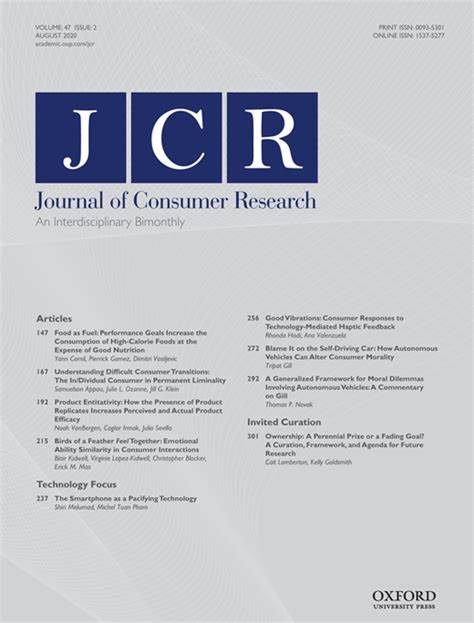How Much Have We Learned about Consumer Research? A Meta-Meta-Analysis
IF 5.7
1区 管理学
Q1 BUSINESS
引用次数: 1
Abstract
This meta-meta-analysis study quantifies the development of scientific knowledge in consumer research by summarizing the findings of 222 meta-analyses that together include 2481 meta-analytic effect sizes. The results provide an overview of how much we know and how knowledge has developed in consumer research over time. By explaining 7.8% variance (r = 0.28) in consumer-relevant dependent variables, the findings show that consumer research, a comparatively young discipline, is relatively effective at knowledge development compared to other disciplines. Furthermore, the accumulation of knowledge is significantly increasing, suggesting that our discipline is still in the growing phase of its life cycle and generating continuously improving explanations of consumer-related phenomena. The development of knowledge varies across consumer-relevant dependent variables, with strong explanations for relationships but significantly weaker ones for memory, affect, and attitudes. Moreover, the knowledge synthesized in meta-analyses is fairly—though not fully—representative of the content of primary research on consumers overall. The findings convey a future research agenda by identifying under-researched areas, advising on the selection of dependent variables, providing indicators for the expected contributions of future studies, suggesting implications for career strategies of consumer researchers, and discussing explanations for the observed knowledge growth effects.我们在消费者研究方面学到了多少?元分析
这项荟萃分析研究通过总结 222 项荟萃分析的结果(共包括 2481 个荟萃分析效应大小),量化了消费者研究领域科学知识的发展。研究结果概述了我们对消费者研究的了解程度以及随着时间的推移,消费者研究的知识是如何发展的。通过解释消费者相关因变量中 7.8% 的方差(r = 0.28),研究结果表明,与其他学科相比,消费者研究这门相对年轻的学科在知识发展方面相对有效。此外,知识的积累也在显著增加,这表明我们的学科仍处于其生命周期的成长阶段,并在不断改进对消费者相关现象的解释。在与消费者相关的因变量中,知识的发展各不相同,对关系的解释较强,但对记忆、情感和态度的解释明显较弱。此外,荟萃分析中综合的知识相当程度上代表了有关消费者的初级研究内容,但并不完全。研究结果提出了未来的研究议程,指出了研究不足的领域,对因变量的选择提出了建议,为未来研究的预期贡献提供了指标,对消费者研究人员的职业战略提出了建议,并讨论了所观察到的知识增长效应的解释。
本文章由计算机程序翻译,如有差异,请以英文原文为准。
求助全文
约1分钟内获得全文
求助全文
来源期刊

Journal of Consumer Research
BUSINESS-
CiteScore
12.00
自引率
9.70%
发文量
53
期刊介绍:
Journal of Consumer Research, established in 1974, is a reputable journal that publishes high-quality empirical, theoretical, and methodological papers on a wide range of consumer research topics. The primary objective of JCR is to contribute to the advancement of understanding consumer behavior and the practice of consumer research.
To be considered for publication in JCR, a paper must make a significant contribution to the existing body of knowledge in consumer research. It should aim to build upon, deepen, or challenge previous studies in the field of consumption, while providing both conceptual and empirical evidence to support its findings.
JCR prioritizes multidisciplinary perspectives, encouraging contributions from various disciplines, methodological approaches, theoretical frameworks, and substantive problem areas. The journal aims to cater to a diverse readership base by welcoming articles derived from different orientations and paradigms.
Overall, JCR is a valuable platform for scholars and researchers to share their work and contribute to the advancement of consumer research.
 求助内容:
求助内容: 应助结果提醒方式:
应助结果提醒方式:


